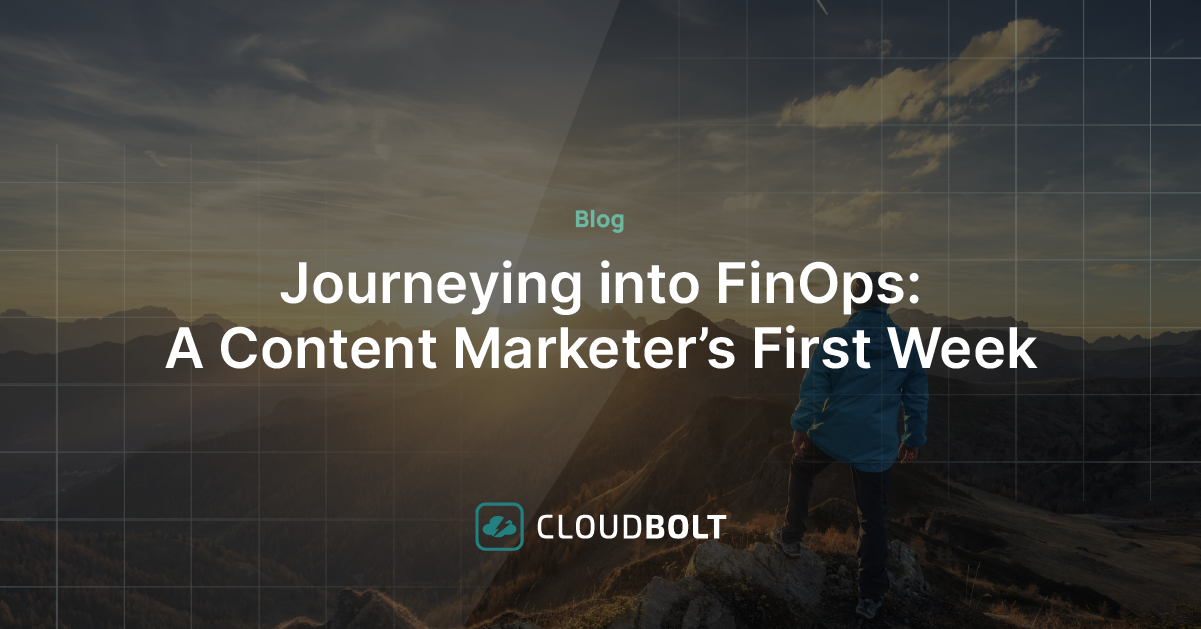Weekly CloudNews: Red Hat & Kubernetes, Multi-Cloud Costs and Data Recovery

Welcome to this week’s edition of CloudBolt’s Weekly CloudNews!
Last week, our CEO Brian Kelly posted this column in PaymentsSource on how operational holes can cause breaches more than security glitches, and in particular highlighted the recent breach at CapitalOne.
Reminder: Carahsoft will be hosting a webinar featuring CloudBolt and AWS on Thursday, Sept. 5 at 2 p.m. EST. The topic will be on orchestrating AWS with CloudBolt. If you’re among the first 50 to sign up and attend, you’ll receive 100 free AWS credits. Sign up here.
With that, onto this week’s news:
Many throats to choke: For better or worse, multiple clouds are here to stay
Paul Gillin, SiliconAngle, Aug. 25, 2019
“In information technology circles, it’s called “one throat to choke.”
“It’s a metaphor for chief information officers’ preference for concentrating most of their business with a single strategic supplier in each category of application and infrastructure. The approach has a lot of appeal to risk-averse IT organizations, including fewer points of failure, better customer service, bigger discounts and clearer strategic direction.”
David Linthicum, InfoWorld, Aug. 30, 2019
“Multicloud is becoming the de facto standard. Indeed, a solid 84 percent of the respondents in the RightScale report use more than four cloud providers, including both the public and private clouds. (Note, RightScale is now part of Flexera.) However, not only are companies shifting to multicloud, but to more than one public cloud as well. That means using Google, Microsoft, and AWS—two or three providers, typically, and sometimes more.”
Why Red Hat sees Knative as the answer to Kubernetes orchestration
James Sanders, TechRepublic, Sept. 5, 2019
“Containers are where the momentum is, in enterprise computing. Even VMware, the last stalwart of traditional virtual machines, is embracing containerization with their absorption of Pivotal. Revenue for the container software market is anticipated to grow 30% annually from 2018 to 2023—surpassing $1.6 billion—according to a recently published IHS Market report.
“From a deployment standpoint, containers are still just different enough of a paradigm that adoption can become complicated at scale. While Docker itself is straightforward enough, automating update lifecycles across dozens or hundreds of deployed containers requires some level of automation in order to increase efficiency.”
Beyond data recovery: A CIO’s perspective on digital preservation
Joseph Kraus, CIO, Aug. 30, 2019
“While most IT organizations have taken the time to establish data backup and recovery procedures as part of their overall operations, few consider long term digital preservation as part of data protection planning. Establishing a formal plan to ensure access to critical data over time is becoming increasingly important as the amount of digital information continues to expand and serves as the only record of an organization’s asset.
“Digital preservation is a formal endeavor to ensure the digital information of continuing value remains accessible and usable. It involves planning, resource allocation, and application of preservation methods and technologies. This is done to ensure continued access to reformatted and born-digital content, regardless of the challenges of media failure and technological change.”
See how CloudBolt can help you. Request a demo today!
Related Blogs

The Future of Cloud Cost Management and Optimization is Here with CloudBolt
It’s an exciting time to be in the Cloud Cost Management and Optimization space. The landscape is quickly changing as…

